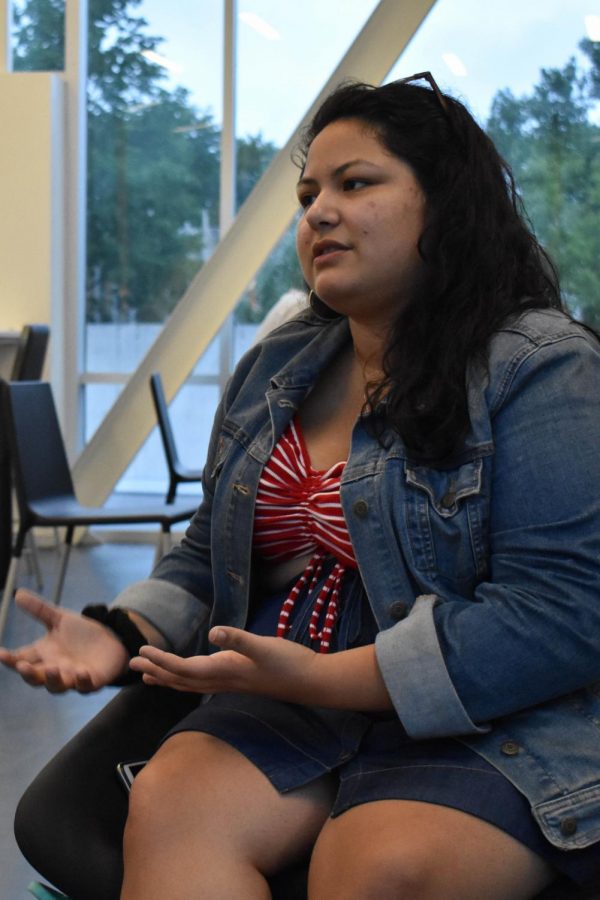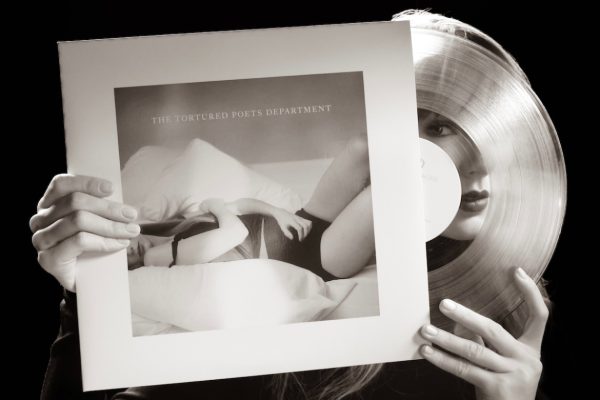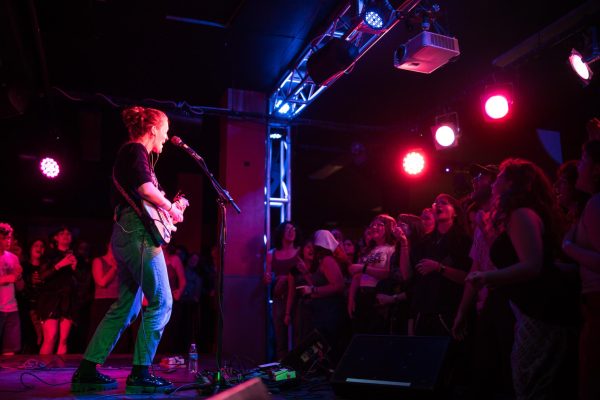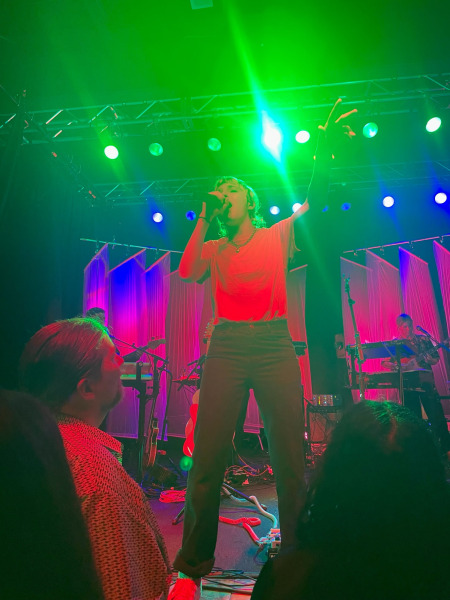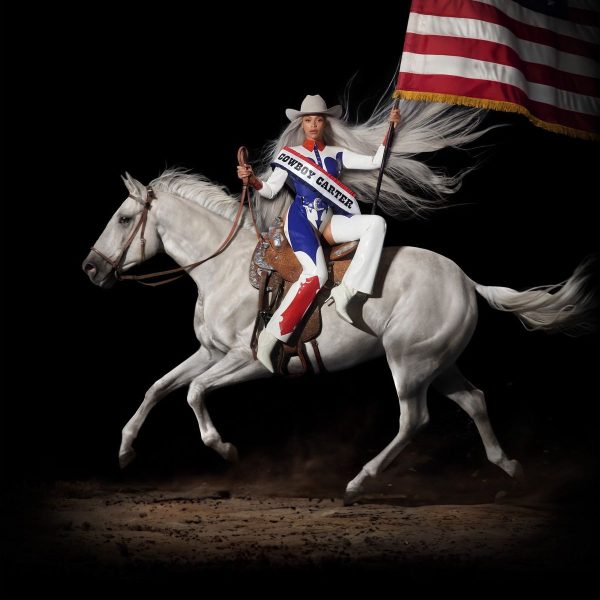Adriana Vergara, Musician and Activist
Conservatory junior Adriana Vergara co-organized Music Toward Prison Abolition, a benefit concert that featured many student musicians of color. The event raised over $1,000 to support participants of the recent nationwide prison strike.
Incarcerated people launched a widespread strike Aug. 21, protesting the dismally low wages they are regularly paid for their labor. The 13th Amendment to the U.S. Constitution, ratified in 1865, codified the prohibition of enslavement and involuntary servitude — with one key exception being incarcerated people. To this day, incarcerated persons are regularly forced to work for mere cents per hour. Often, this work is physically demanding and even dangerous — the State of California, for instance, leveraged its substantial prison population to fight the West Coast’s extreme wildfires this summer. Those who have joined the strike believe that prison labor is a form of modern-day enslavement and have outlined 10 demands calling for reforms to the criminal justice and prison systems, specifically in regard to ending mass incarceration and racialized discrepancies. In some areas, incarcerated people are also focused on gaining more rights, such as the right to vote. Though the strike has gained rapid momentum, it has had minimal coverage in the media.
In support of this nationwide strike, Oberlin students threw a benefit concert in a Village Housing Unit Friday, Sept. 7 that primarily showcased musicians of color. Featured were student acts Spice Lo, little bear, Xango/suave, and FOGATA. We spoke with Conservatory junior Adriana Vergara, who hosted and organized the event along with double-degree senior, member of Xango/suave and lead singer of FOGATA, Mobey Irizarry.
I want to start with some general background — how did this event come together? What did planning it entail?
Well, I have a band that plays Latinx party music, mostly made up of Latinx performers on campus. This year I have a house close to campus — it’s a great space for shows… I thought it would be a fun opportunity to get everyone together, and I’ve really wanted an excuse to play a show. It was actually Mobey’s idea to turn it into a fundraiser for the strikes for prison abolition… People are going to want to go to a party either way on a Friday night, so being able to channel that into something that tangibly benefits the community was really great.
How much did you end up raising?
Over $1,000 in donations alone and even more with the profits from concessions. We didn’t have any trouble with people not wanting to pay. It was cool to see how eager people were to help … we got quite a few donations from people who didn’t even make it to the event.
What role do you think Oberlin’s student body played in the success of the event?
This event definitely combined two of Oberlin’s biggest strengths — politics and music — and I think that’s a big part of it. I’ve been on other campuses where I haven’t seen the same motivation. I’m not saying our success necessarily depended on Oberlin specifically, but I think having a political climate here that is so conducive to people putting those two things together helped a lot.
So going a little into the movement itself, I know one of the main focuses of the national movement is an end to unpaid forced labor in prisons — “prison slavery.” What are your thoughts on this particular piece of the conversation?
It’s so important. It’s something that hasn’t been talked about, and still isn’t, enough for the necessary action to be taken. Not only are people of color so disproportionately targeted, they’re then put into these conditions that are completely inhumane. And there are people in positions of power who are directly benefiting off of this [unpaid labor]. It fosters a horrible environment for [the incarcerated], both in their day-to-day and in the context of their long-term mental health.
Since the strike ended, its organizers have said they’re “thrilled with the publicity” they’ve received, but the news apparently hasn’t reached members of Congress What are your thoughts on this disconnect?
I think it’s intentional. A lot of the people who stand to profit off the unpaid labor are the ones in a position to change the laws. I know the prison system is, partly by design, very far removed from people’s daily lives, which is a problem. I mean, I can’t say I know much of it from the inside — most people don’t. But it’s up to lawmakers to put in the effort. We all need to put in the effort to understand what’s going on.
Yeah, with this particular event you guys were able to use a social incentive to get students to participate in a cause they otherwise might not even know about. As a musician, is that something on your radar? What role does music play in getting people involved in politics?
There’s such a big connection between art and politics … political music can be enjoyed by non-political people. And I think students who maybe otherwise wouldn’t be paying attention to the news will show up and get involved if they’re drawn in by something like a live show. I think most people here are in support of the strike, but events like this help give them the extra push to take action.
We want to add something to the scene on campus in terms of DIY shows on campus. With this show specifically, we wanted to target something that is mainly affecting people of color using music coming primarily from musicians of color. There’s a lot of spaces here in the DIY music community that are maybe not totally POC friendly in terms of performers.
Absolutely. And on the subject of marginalized groups not having a voice, this movement also is calling for voting rights for prisoners, which, with 2.3 million people incarcerated in the U.S., could have huge implications for upcoming elections.
Yeah, the fact that many of the incarcerated are not only unable to vote while in prison, but also after they’re released is [unjust]. These people don’t have a voice at all. They don’t have a voice to express distaste with a system that hurts them, to express their own experiences, or to get their message out to help other people avoid prison. So I think that’s a really unfair move from lawmakers to silence the people that would be most effective in changing these laws, and I think it’s important for us use the platforms we have to help whenever possible. Just the feeling of community that live music can create is so powerful. One of our goals is to do more shows and fundraisers. We wanted to take advantage of the opportunity to bring something that seemed not present enough on campus.


